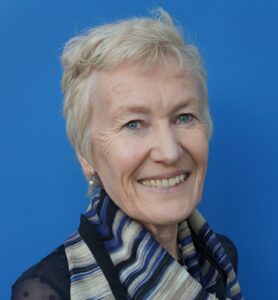Can we teach skills online?

By Lin Smith
As lecturers we can lecture, can’t we? Have our online students acquired key skills for success? We design the assessment, so we think we assess what we have taught and what we expect them to have acquired. I have been taking a look into key academic skills for study and what skills online students have acquired and what’s assumed. The learning for online lecturers/authors is to get better at it, learn from colleagues and prioritise appropriate staff development.
How do students acquire key academic skills online? Along with colleagues I asked online MBA students, their tutors (Associate Lecturers) and Business School academics as authors of online materials. Students said their online acquisition of the key skills was patchy and they would have liked and needed more coherent scaffolding. Some activities worked, like commenting on each other’s blogs. On some modules, students and staff found that assessment required key skills that had been assumed, or not consistently taught. Mid way through the MBA, assessors can find students who still show poor skills for making a coherent argument, reflective practice, critical engagement with theory or could be better at information sourcing.
A recent study of postgraduate business student and lecturer perspectives on learning (O’Donovan, B., den Outer, B., 2020) observed some teaching staff scaffold skills for reflective practice by getting students to think differently and some do not, expecting students will ‘get it’. That inconsistency of understanding was the case with the authors interviewed here. Some showed more interest and aptitude for authoring online than others. After all, they were mostly recruited for their subject knowledge.
Arbaugh (2010) in comparing online undergraduate and MBA student learning, suggests that MBA online students want more focus on their learning styles and the course management system and also discusses (2014) whether learning acquisition for MBA students online is more about the scholar, learning design or the software. In our study, authors were asked about designing for a diverse online student body. Some authors were challenged by the scale, lack of knowledge about the students and not seeing the student response. There are also culturally different student perspectives that may be hard to gauge by online authors. Fenton O’Creevy and Van Mourik’s work (2016) with OU MBA Japanese students identifies ‘language as social practice’, showing how the challenges faced by students at a distance to understand assessment terminology, can go unseen. So, we looked at student differences. Some MBA students with a PhD, thought they understood how to study but found they were challenged to acquire skills online for management success.
Learning design for online learning prompts authoring to go beyond assimilative learning. Authors indicated that they had to learn how to address skills teaching online on the job. Teaching skills is a challenge – teaching them online can be a slow process, often awaiting critical feedback on student activities. Students told us that they can find online activity instructions abstract and timing inaccurate. Students acquired key skills online from tutor feedback on assignments, in some activities and at residential schools.
Key learning from this research is to find which online activities help student skill acquisition and work on how these can be more coherently developed in a qualification. Induction and development of academics as online management educators must be prioritised. This may include mentoring, use of a self-assessment competency grid and adequate resourcing. We must learn from all involved in highly subscribed OU business and management apprenticeships and from wider practice. The pandemic, resulting in much higher education going online, means the research becomes more widely relevant in the sector.
References
- Arbaugh, J.B., (2010) Do Undergraduates and MBAs Differ Online? Initial Conclusions from the Literature, Journal of Leadership and organisational Studies, Volume: 17 issue: 2, page(s): 129-142
- Arbaugh, J. B. (2014). System, scholar, or students? Which most influences online MBA course effectiveness? Journal of Computer Assisted Learning, 30(4), 349-362. doi: 10.1111/jcal.12048
- Fenton-O’Creevy, M., van Mourik, C., (2016). ‘I understood the words but I didn’t know what they meant’: Japanese online MBA students’ experiences of British assessment practices. Open Learning: The Journal of Open and Distance Learning, 31(2) pp. 130–140. accessed 2/6/20
- O’Donovan, B., den Outer, B., (2020) Perspectives on Intellectual challenge in contemporary business education – an oxymoron? ABS

Lin Smith
Lin Smith is an Associate Lecturer at the Open University and Senior Fellow of the HEA. If you would like to get in touch, please email
This blog represents the views of the individual, not SCiLAB or the Open University.

Blog posts
- Rethinking Tuition: Reflections from the Staff Tutor / Student Experience Manager (SEM) Symposium, 4-5 December 2024 6th June 2025
- ‘Hitting the keyboard’ : Exploring student feelings and approaches to developing legal research skills 9th May 2025
- From Feedback to Action: The Student Voice Festival in Law Education 15th April 2025
